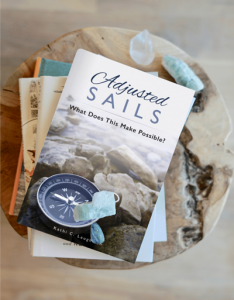 Personal development expert and author Brian Tracy teaches the value of zero based thinking. This practice invites you to re-examine choices based on the principal of evolving possibilities.
Personal development expert and author Brian Tracy teaches the value of zero based thinking. This practice invites you to re-examine choices based on the principal of evolving possibilities.
While it may seem obvious, we often need to be reminded that for choices to be unlimited, one of our choices has to be to change direction, to adjust and shift, even stop and re-start.
Emily Dickinson once said that we must “Dwell in possibility”. That is the secret. It is not something you occasionally do. It is where you live. The land of the winners is a citadel built on the art of possibility.
Possibilities are a personal business because we are each unique. We all have our own philosophy of life and point of view that is constantly evolving. Hence the need for re-examining our choices. At any given time, we can see different possibilities. That is what makes this so incredibly powerful. There is truly no limit to what we can accomplish because we can grow into our evolving opportunities.
My favorite success stories involve learning how to apply something already known to a new situation. In these stories someone embraced the idea of a new application of knowledge as a new opportunity for success. Each had to learn something new as well. That is part of the growth process. Each layer builds on the other.
We keep moving forward, opening new doors, and doing things, because we’re curious and curiosity keeps leading to new paths. ~ Walt Disney
If you want to be an accomplished musician, you start with the scale and go from there. You progressively add to your expertise by layering your knowledge. If you want to be a successful business owner you need some basic understanding of how businesses work in order to see how all of the elements of your company work together to serve your customer. Every discipline has its own version of the musical scale. What is yours? How well do you know it? How are you layering new knowledge to increase your understanding and expertise? To drive positive change?
We must remember though that because change can and will bring with it some fear, we should expect to experience resistance. What we must embrace is the fact that growth transforms and creates new vistas for us. It is a good practice to pay homage to what we enjoyed about what we are leaving behind as long as we understand that growth requires a willingness to change. The key is to be committed to intentional growth.
“The only man I know who behaves sensibly is my tailor. He takes my measurements anew each time he sees me. The rest go on with their old measurements and expect me to fit them.” ~ George Bernard Shaw
Take on the role of creator in your life’s design and plan. Take Emily’s advice and dwell in possibility!
Live today like you want tomorrow to be. Live well.







 There were going to be eight of us for dinner at 7:00 on a Saturday evening.
There were going to be eight of us for dinner at 7:00 on a Saturday evening. You are perfect just the way you are! Now that I am a Nana to some pretty spectacular grand-daughters, this is a sentiment that I express on a regular basis. And I absolutely mean it. Those girls are perfection and I will never believe otherwise. Just ask them! You may get a bit of an eye roll from the teenager but no argument that their Nana is their number one fan! Biased? You bet.
You are perfect just the way you are! Now that I am a Nana to some pretty spectacular grand-daughters, this is a sentiment that I express on a regular basis. And I absolutely mean it. Those girls are perfection and I will never believe otherwise. Just ask them! You may get a bit of an eye roll from the teenager but no argument that their Nana is their number one fan! Biased? You bet. A core personal practice that has been one of the key contributors to my personal growth is journaling. This subject came up recently at a master mind group and it was a reminder that not everyone may know about how powerful this practice can be.
A core personal practice that has been one of the key contributors to my personal growth is journaling. This subject came up recently at a master mind group and it was a reminder that not everyone may know about how powerful this practice can be. What can we think of if only we try?
What can we think of if only we try?

